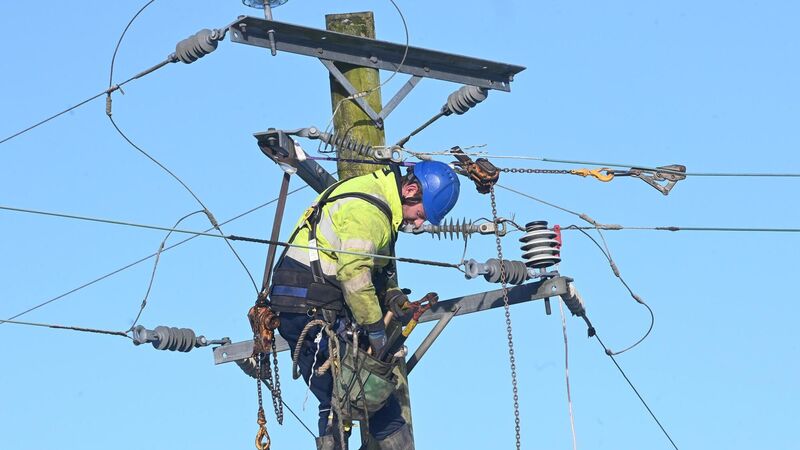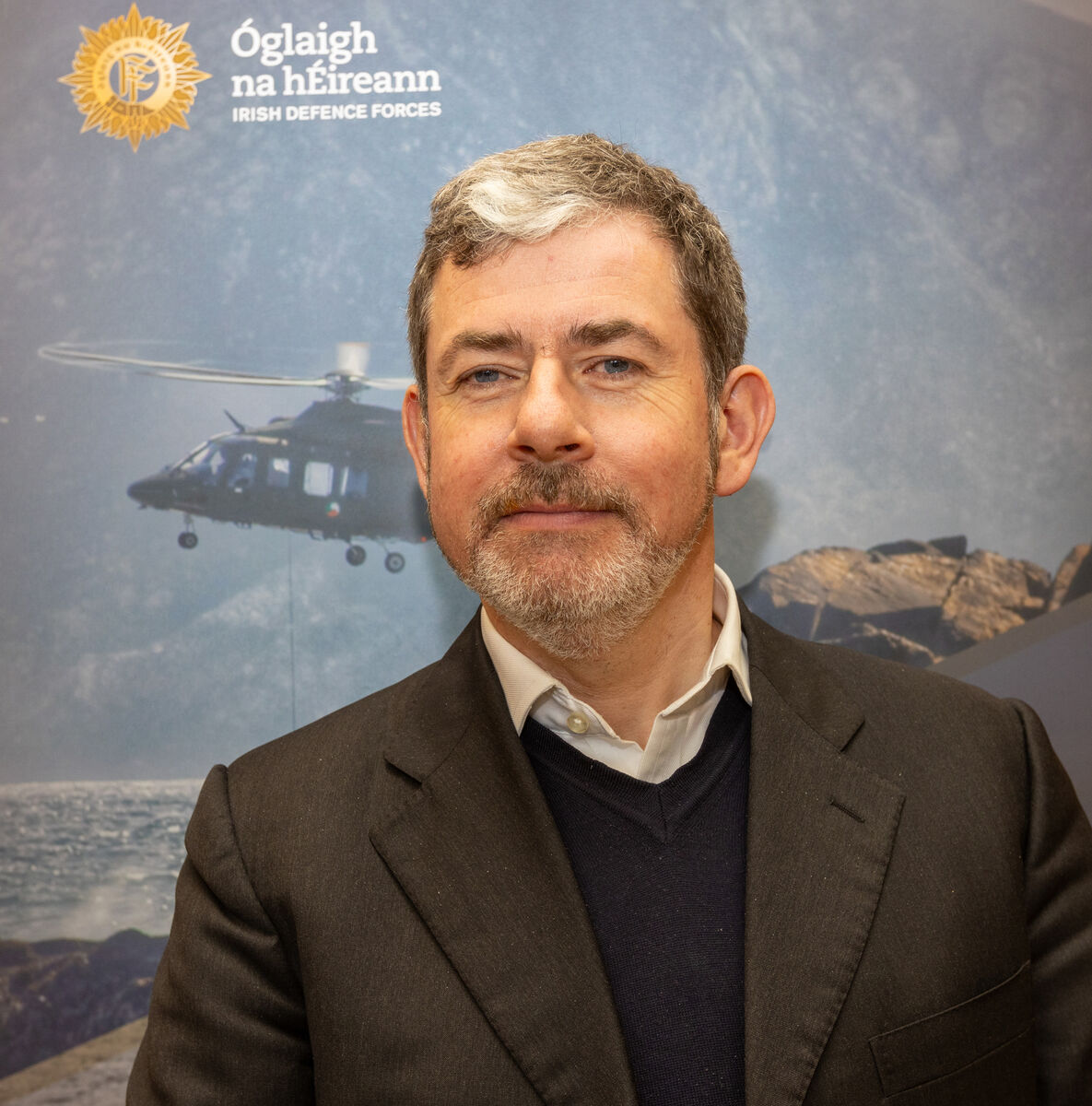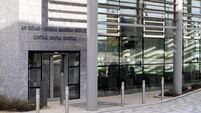'Storm Éowyn should warn us about threat to Ireland's gas pipelines and electric cables'

ESB staff and contractors had to work for weeks to restore power after Storm Éowyn. Experts point to that disruption to highlight how vulnerable Ireland is to attacks on its undersea cables and pipelines. Picture: Larry Cummins
The Government needs to focus its maritime capabilities on the most important parts of our critical national infrastructure — gas pipelines and electricity cables — in order to avoid “severe” repercussions if either is damaged, experts have warned.
Ireland relies on just two gas pipelines and two electricity interconnectors —both of which connect to Britain — for the bulk of its imported energy needs.
With 80% of Ireland’s energy requirements dependent on imported fossil fuels, the consequences of deliberate, suspicious, or accidental damage to either could be very serious for domestic electricity supply, in turn impacting on the Government, economy, and society, security sources and academics have said.
In a special report in today’s , experts express grave concern at the lack of action to address the threat, the continued absence of a co-ordinated maritime security response, and slow progress in investment in naval service capabilities.

“People are perhaps not aware that subsea electricity cables and underwater gas pipelines are very different infrastructure from data cables which carry the internet,” Brendan Flynn, a University of Galway politics lecturer and specialist in maritime security, said.
“There are only a few, so if one is deliberately sabotaged, the consequences are much more severe and important and the repair time is much longer.”
Irish and British naval and air assets scrambled together a security operation last November when the Russian ‘subsea spy ship’ Yantar travelled up the Celtic Sea and Irish Sea, passing two electricity interconnectors before loitering over a large cluster of data cables and two gas pipelines west and south of the Isle of Man.
“We need to focus on the really critical infrastructure — the two gas pipelines and two electricity interconnectors — we have,” said a senior security source. “If data cables are cut, the global internet traffic can be rerouted to other cables but you can’t reroute a gas pipeline or an interconnector.”
The source pointed to the impact that electricity outages during Storm Éowyn had and the knock-on effect on heating, water supply, mobile phone telecoms, and internet access.
“It made life difficult and uncomfortable for a lot of people,” the source said.
"You literally face the danger of going dark and you could have the choice of keeping data centres going or hospitals going.”
The source said people are mistaken if think no hostile state, such as Russia, would have reason to conduct such sabotage:
“It won’t be Ireland that is the target, but Europe.
"This would divert assets from the Black Sea, suck up resources from Eastern Europe and give Russia a strategic advantage.”
Edward Burke of UCD Centre for War Studies and Andrew Cottey of UCC said the continued lack of subsea capabilities meant Ireland needs to look to the EU, Britain, and France for assistance.
Security sources said the lack of coordination on maritime security was because of a “lack of direction” from Government.
Mr Flynn and fellow maritime expert, Robert McCabe of Coventry University, have called for the establishment of a Maritime Security Agency to coordinate the work of departments and bodies.
There is significant concern among experts at the slow progress in the implementation of Government commitments to deliver a primary military radar and subsea sonar technology as well as a maritime security strategy.
The Department of Defence said “good progress” was being made on seeking the delivery of the radar and said the intention was to return to the market “in the near future” on sonar technology.
The department said the Defence Forces is taking part in various projects with both Nato and the EU on subsea infrastructure protection, maritime security and cyber security.





